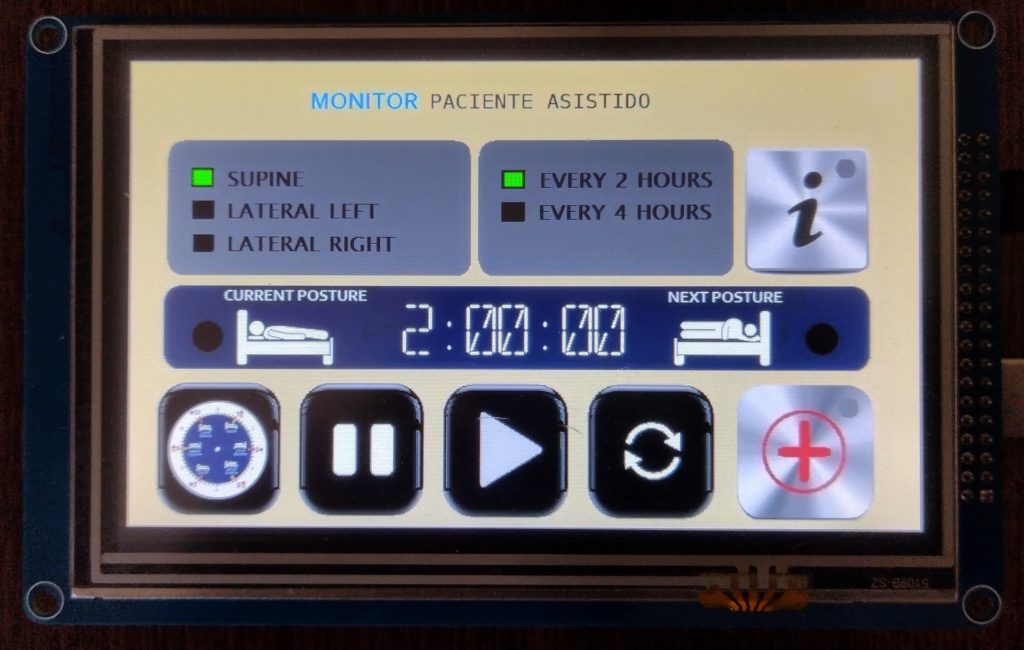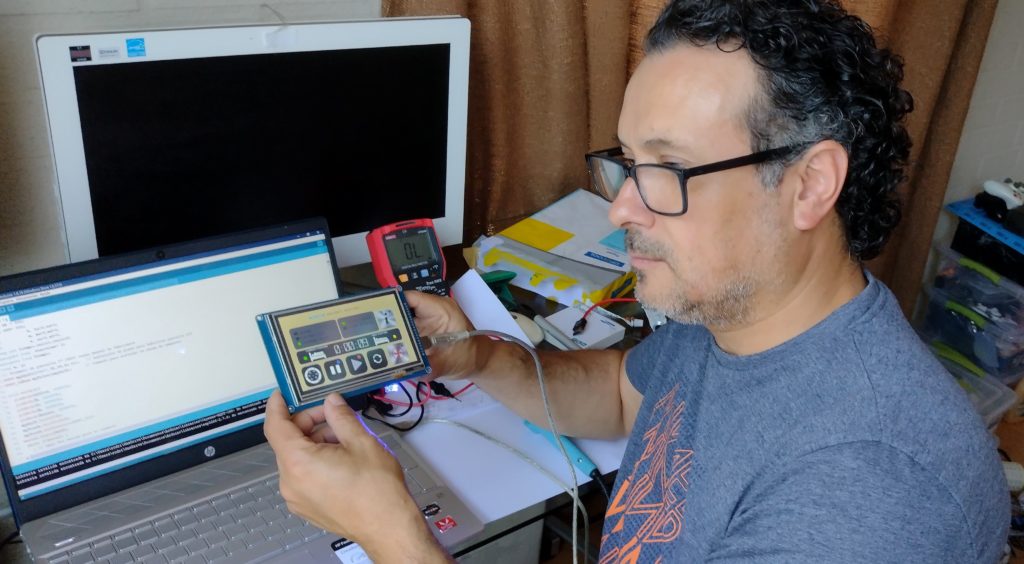This Arduino monitor helps prevent bedridden patients from getting pressure sores and more

For people who are recovering from a major surgery or those who have a disability, ensuring proper posture while lying down for extended periods of time is vital for reducing joint pain and other ailments that come about from a lack of movement, including pressure sores. Rodrigo Mejiasz’s project aims to solve the issue by using a small device that monitors how long a patient has been lying down in one position and alerts a caregiver when it’s time to adjust them.
It is based around an Arduino Mega in combination with a 5” TFT screen that displays a clear graphical interface with several key datapoints and configuration options. The top of the display has choices for both the posture and the time interval between switching. Below that is a readout of the current posture, the upcoming one, and how much time has elapsed so far. Finally, there are buttons at the bottom for pausing or resuming the monitor.

Although simple, the Bedridden Patient Monitor has the potential to improve the quality of life of patients by reducing joint pain and the pressure placed onto certain areas of the body for extended amounts of time. You can read more about the project in its Mejiasz’s post as well as Hackaday’s coverage of the project here.